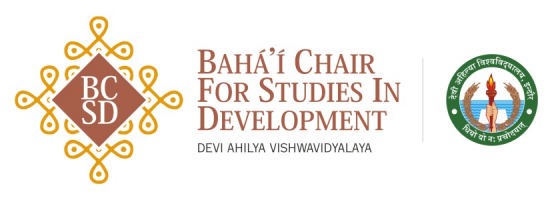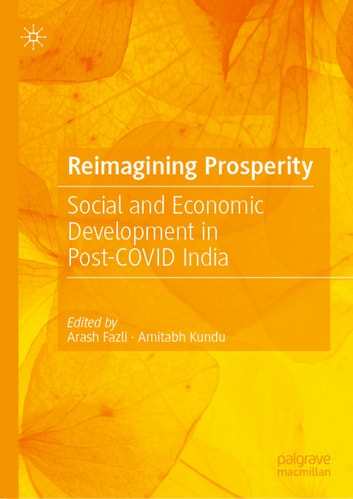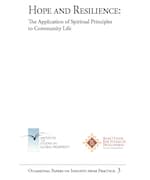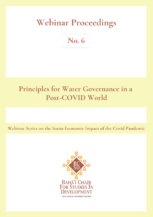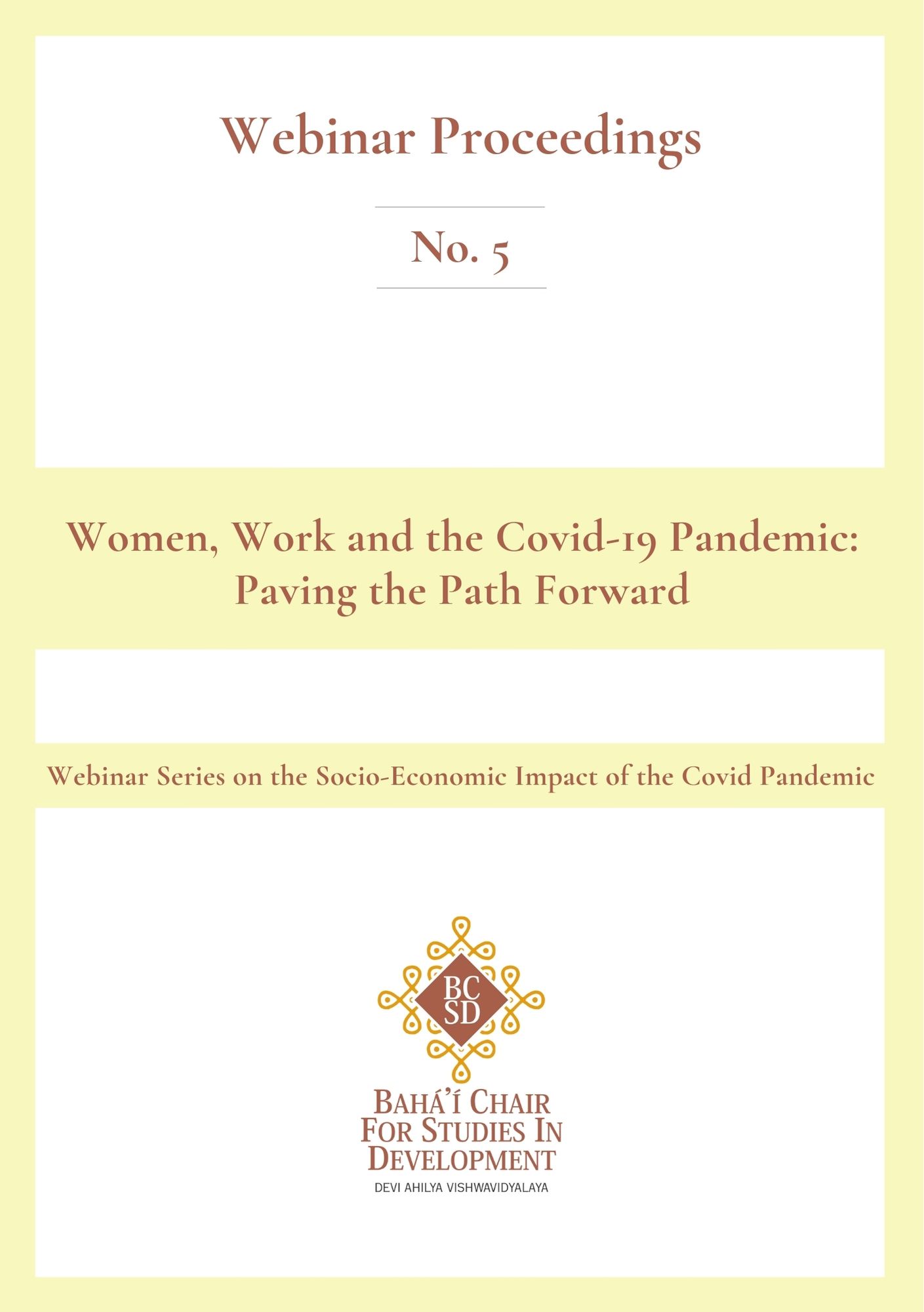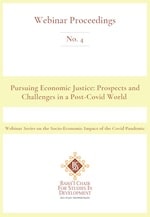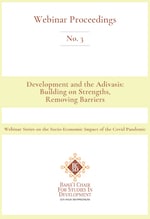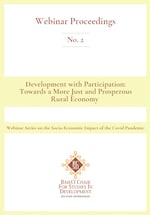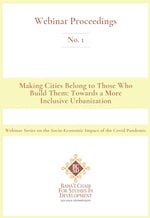The studies carried out by the Bahá’í Chair for Studies in Development seek to generate knowledge on the application of spiritual principles and scientific methods in the pursuit of social and economic progress both in the context of community life and formal development programs.
Some of the recent publications of the Chair are as follows:
Building a More Caring World: Implications for the Family, the Community, and the Market
This discussion paper has been prepared by the Bahá'í Chair for Studies in Development to stimulate reflection and dialogue on the implications of building a caring society. The paper explores these implications in relation to three crucial contexts where fundamental change is needed – the family, where conceptions, attitudes, and norms related to care are formed, enacted, and socialized; the community, where caring relationships based on mutuality and friendship are forged and strengthened; and the market, an institution in need of profound change to facilitate rather than inhibit the expression of the caring capacities of individuals and communities.
Download Reimagining Prosperity: Social and Economic Development in Post-COVID India
This book explores the second-order effects of the COVID-19 pandemic on social and economic development in India. The chapters in this volume provide theoretical perspectives and empirical insights from a range of disciplines including history, economics, water management, food and nutrition security, agriculture, rural management, public health, urbanization, gender studies and development of the marginalized. It discusses the pressing questions that have been raised by the disruption caused by the pandemic and proposes insights and interventions to build a more just, sustainable and united post-COVID India.
Click here to access the book Hope and Resilience: The Application of Spiritual Principles to Community Life
This document expands upon research related to the spiritual dimension of development endeavors, generating further insights into how communities make use of concepts and principles, such as the oneness of humankind and humanity’s interconnectedness with nature, in their efforts to contribute towards the common good. This study focuses on the creation of strong networks of social support and the management of water-related challenges within the context of informal settlements, which provide a rich setting to illustrate the link between beliefs and interactions in a shared geographical space.
Download in English Download in Hindi
Principles for Water Governance in a Post-COVID World
Webinar proceedings
This document captures proceedings from a webinar that explored the issue of water governance which can only be comprehensively
addressed in the context of a moral transformation that seeks to build a society that embodies the principles of environmental stewardship, justice, and the oneness of
existence.
DownloadWomen, Work and the Covid-19 Pandemic: Paving the Path Forward
Webinar proceedings
This document captures proceedings from a webinar that explored the impact of the pandemic on the economic and productive lives of women in India and of possible interventions that could reduce and reverse the widening gender disparities in relation to work.
DownloadPursuing Economic Justice: Prospects and Challenges in a Post-Covid World
Webinar proceedings
This document captures proceedings from a webinar that explored the necessity and implications of reorienting economic policies to promote more equitable and inclusive growth strategies so that economic progress translates into human development and social progress and that the fruits of growing prosperity reach the most underprivileged.
DownloadDevelopment and the Adivasis: Building on Strengths, Removing Barriers
Webinar proceedings
Despite the richness of their spiritual, artistic and cultural heritage, the Adivasis who are the indigenous populations of India are among the most economically and socially underprivileged groups in the country. The Covid-19 pandemic has only exposed their extreme vulnerability. This document captures proceedings from a webinar that explored the combination of long-term macro development policies and the transformation in society’s collective consciousness that would open the way for the genuine and meaningful participation of Adivasis in building a just and united society.
DownloadDevelopment with Participation: Towards a More Just and Prosperous Rural Economy
Webinar proceedings
The migrant crisis in India arising in the wake of the Covid-19 pandemic has brought into sharp focus the deterioration of the country’s rural economy. It has stimulated a search for alternative futures for India’s villages where the path of development involves the genuine participation of rural people and the contribution of their spiritual, social, intellectual and cultural resources to the development process. This document captures proceedings from a webinar that explored a way forward towards a more just and inclusive form of rural development.
DownloadMaking Cities Belong to Those Who Build Them: Towards a More Inclusive Urbanization
Webinar proceedings
The Covid 19 pandemic in India led to the return of nearly 80 million migrants from the cities to villages and small towns. This crisis highlighted the exclusionary and exploitative nature of urbanization that depends on the cheap labour of a vast working class consisting of nearly 500 million people living and working in dire conditions. This document captures proceedings from a webinar that explored the challenge of making urban development more inclusive both at the structural level as well as in terms of the way the economically underprivileged are conceived in development thought and urban policies.
DownloadSome older publications by the faculty and students of the Baha'i Chair:
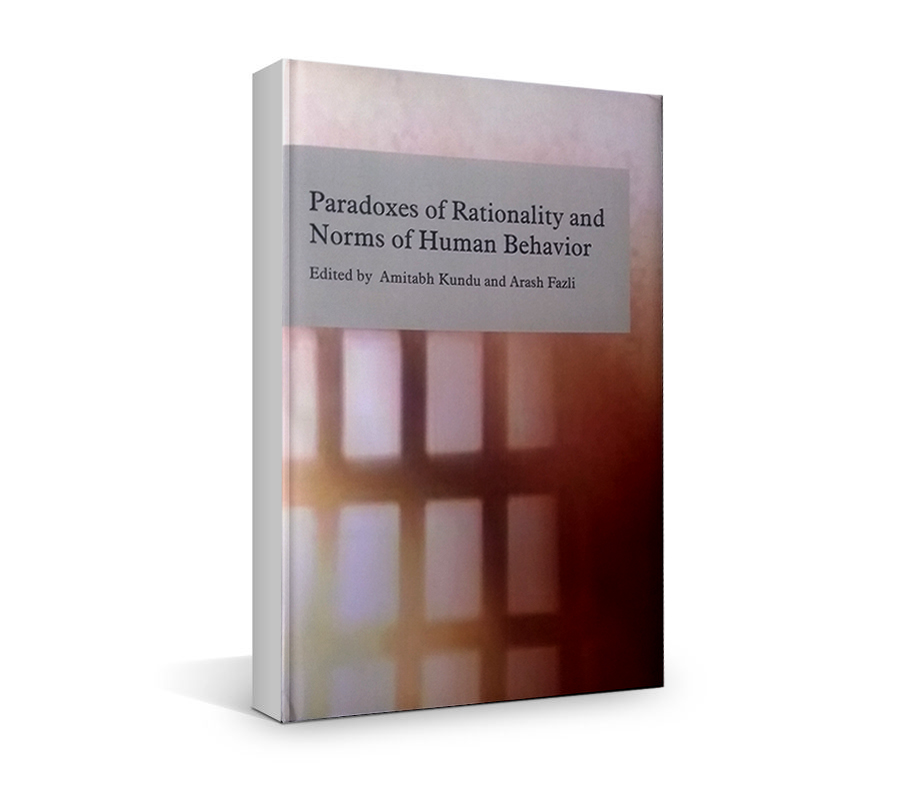
Paradoxes of Rationality and Norms of Human Behaviour edited by Amitabh Kundu and Arash Fazli, Manak Publications, Delhi. 2014
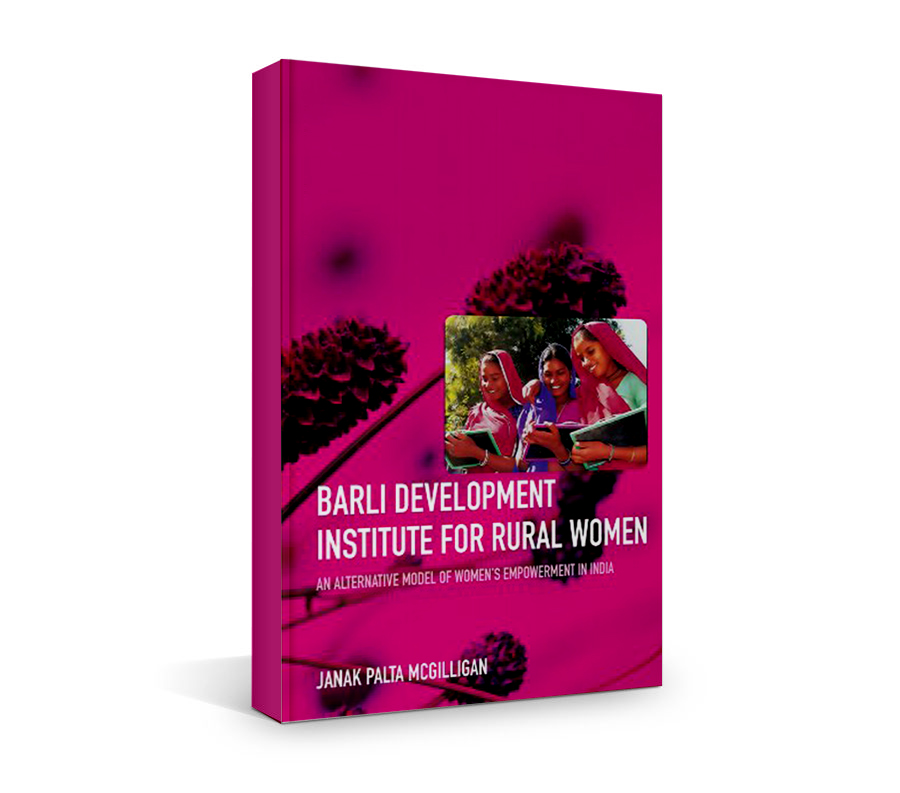
Barli Development Institute for Rural Women: An Alternative Model of Women’s Empowerment in India by Janak Palta McGilligan, George Ronald, UK, 2012.
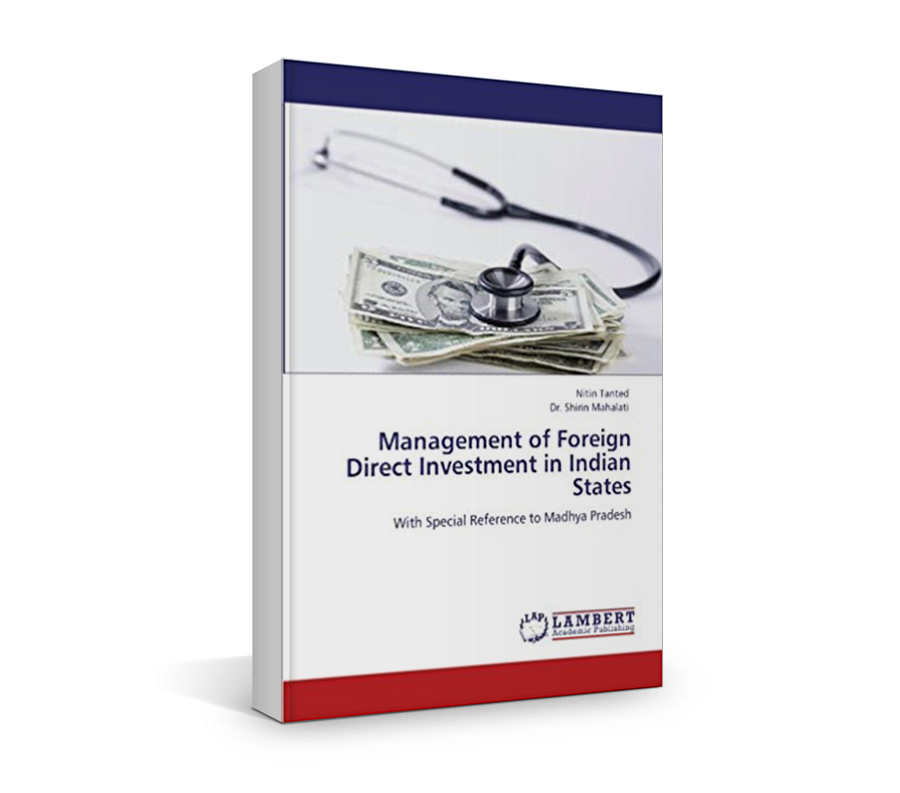
Management of Foreign Direct Investment in Indian States – With Special Reference to Madhya Pradesh by Nitin Tanted and Shirin Mahalati, LAP LAMBERT Academic Publishing, 2011
